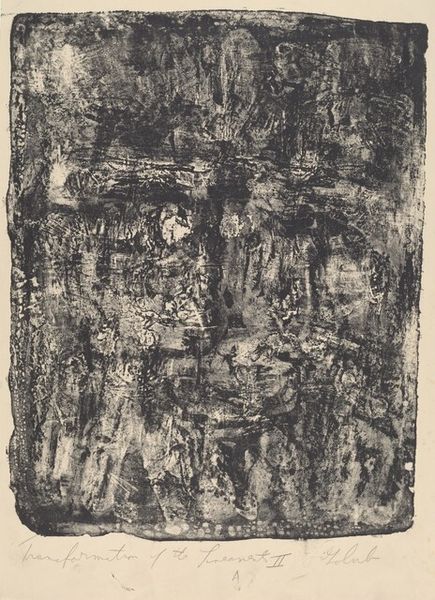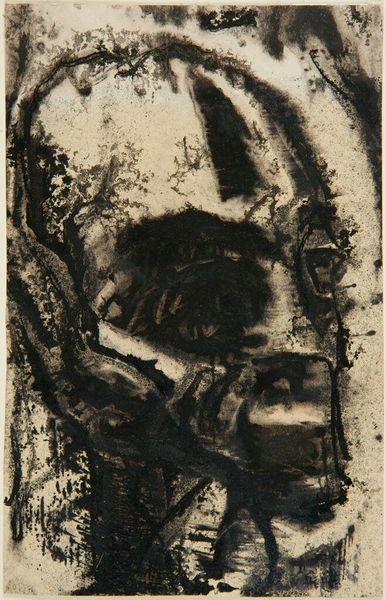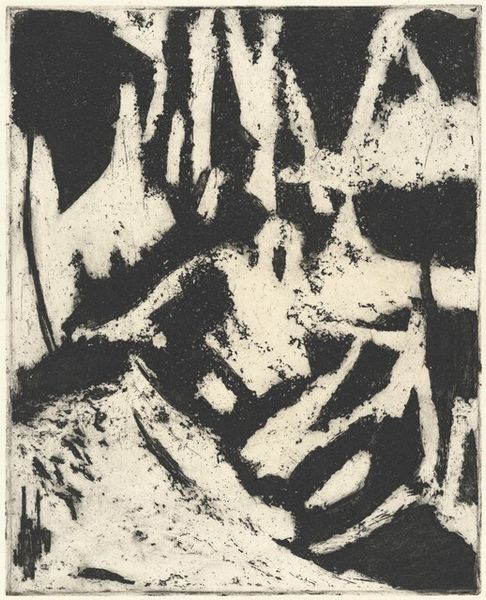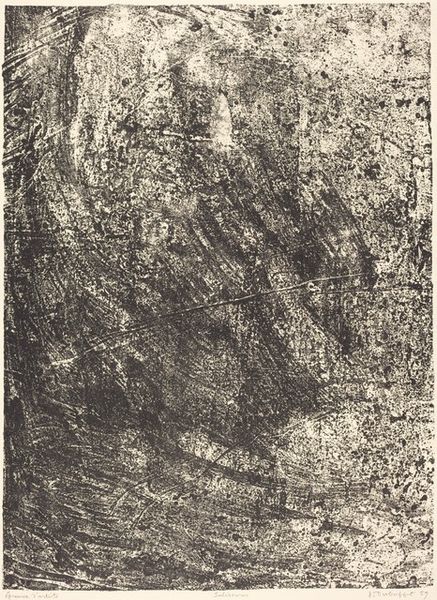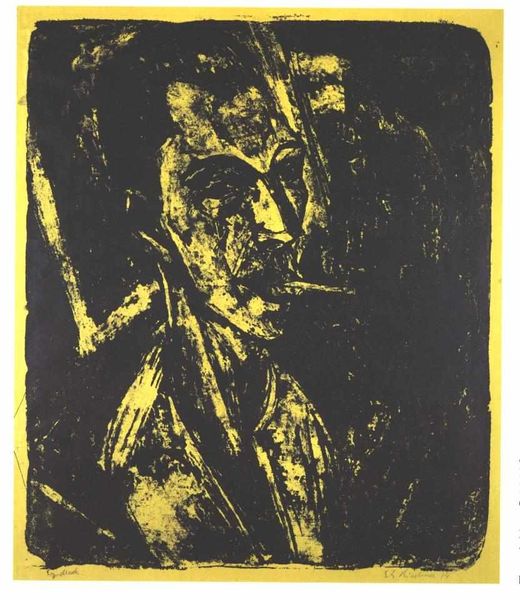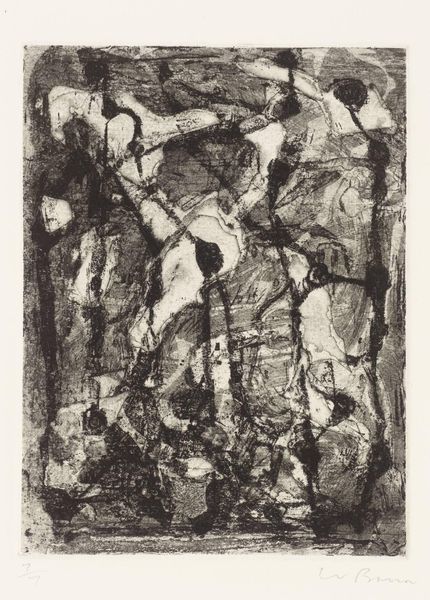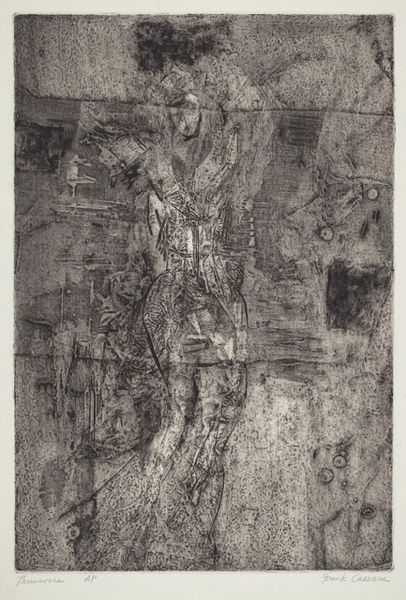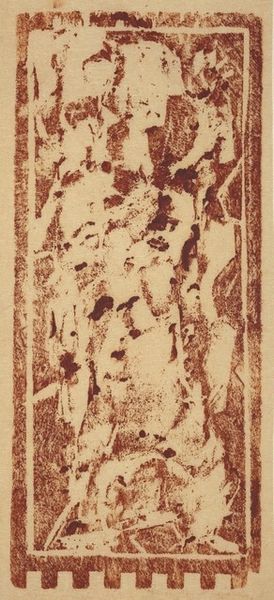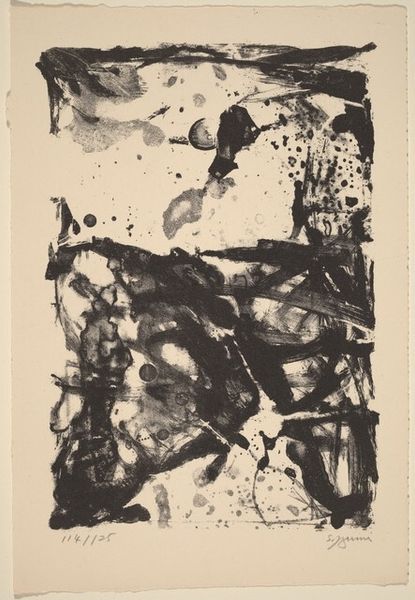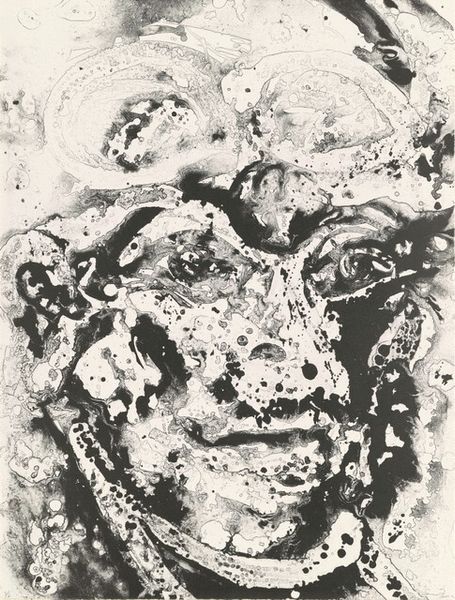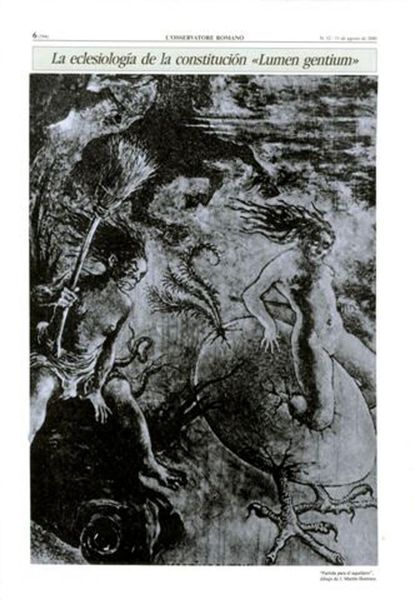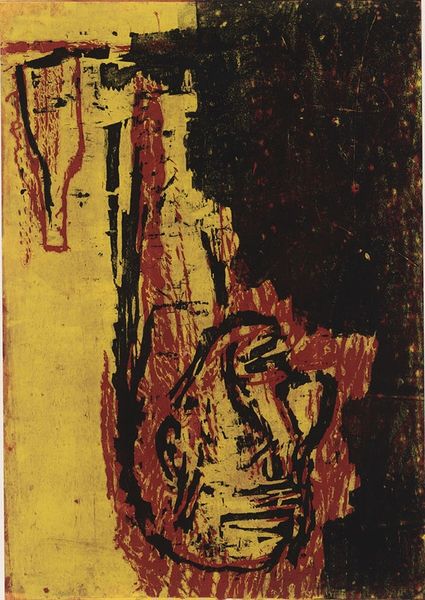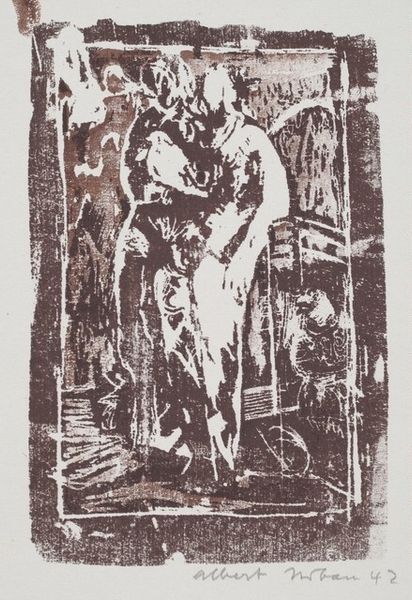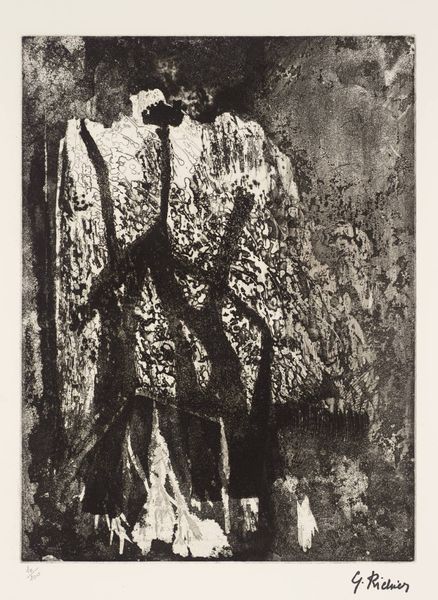
drawing, print, ink, graphite
#
drawing
#
ink painting
# print
#
ink
#
graphite
Copyright: National Gallery of Art: CC0 1.0
Curator: Here we have Rudy Pozzatti’s 1963 print, "Trajan," a work rendered in ink and graphite on paper. The piece presents a striking, somewhat abstract portrait. Editor: My immediate response is… powerful, yet haunting. The subject's gaze feels both knowing and distant. It has a sense of struggle embedded within it. Curator: Considering the socio-political atmosphere of the early 1960s, this portrayal speaks to larger themes. Pozzatti, working during the height of the Civil Rights Movement and escalating Cold War tensions, reflects on power and authority through the historical figure of Emperor Trajan. This brings forth critical questions of leadership, imperialism, and their impact on marginalized groups. Editor: I agree. There's definitely a tension there, this Trajan is not glorified. The expressive ink strokes feel almost violent, creating this sense of unease around a historical figure typically associated with triumph and order. Curator: The title is interesting, isn’t it? Pozzatti titles the print “Trajan”, yet visually we see very little of the celebrated Roman emperor who was idealized throughout history. This contrast encourages us to critically assess power. By rendering Trajan with such raw, gestural marks, Pozzatti deconstructs the historical image. Editor: It's a bold artistic choice, and certainly fits the tumultuous atmosphere of the era. The splatters and drips also remove this man from the heroic sphere and show that maybe no leader is truly spotless, implicating their flawed humanity. It invites dialogue about leadership and their effects. Curator: Looking at "Trajan" within the context of printmaking traditions adds another layer. Pozzatti's method mirrors a desire to experiment with art. Printmaking allowed his work to enter the public domain in new ways. It became a tool for societal change, reflecting on social injustices during the ‘60s. Editor: It does offer us a potent reminder about the fragility of power and its moral accountability. Pozzatti’s "Trajan" offers a necessary and provocative re-examination of power structures. Curator: It serves as a remarkable conversation starter and reflection point for contemplating both our past and current societal landscape. Editor: Exactly, a call to engage with difficult dialogues concerning accountability, memory, and progress.
Comments
No comments
Be the first to comment and join the conversation on the ultimate creative platform.
